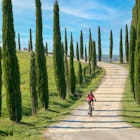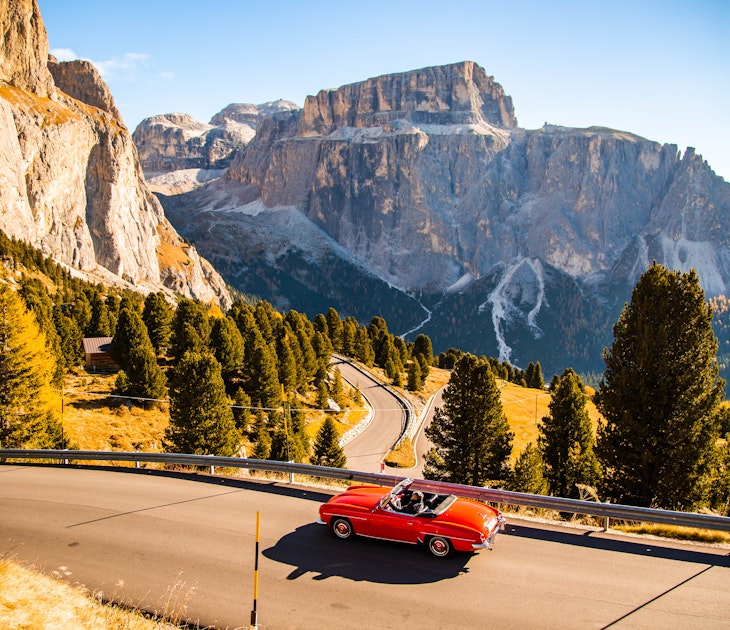
The best times to visit Sardinia for beaches, city exploring and fabulous festivals
Mar 18, 2024 • 4 min read

Seaside fun is the primary motivator for summer visitors to Sardinia © Senserini Lucrezia / Getty Images
Blessed with a balmy Mediterranean climate, white sands and sparkling waters, Sardinia is one of southern Europe’s most alluring beach destinations.
Yet while seaside fun in the sun is the prime motivator for summer visitors, the island’s spectacular hiking trails, impressive archaeological sites and colorful cultural traditions make Sardinia a year-round destination.
Rainfall in this island province of Italy is scarce for most of the year. Summer visitors can expect near-perfect beach weather, while those who come in the off season will benefit from lower prices and opportunities to soak up the traditional local atmosphere at some of Europe’s most distinctive festivals.
Read on for our recommendations for the best times to visit Sardinia.

June through September are the best months to soak up Sardinia’s stunning beaches
From June through September, Sardinia enjoys blissfully warm and sunny weather, with agreeable 25–35°C (77–95°F) days, balmy evening breezes and inviting water temperatures that range from 20° to 26°C (68° to 79°F). Beaches, boat tours and water-sports operators are all in full swing during these summer months. Prepare to slather on the sunscreen – especially along the coast, where reflections off white sands and limestone cliffs serve to amplify the sun’s intensity and the risk of sunburn.
Tourists descend on the island en masse in July and August, resulting in skyrocketing prices, crowded beaches and coastal traffic snarls. In particular, we’d recommend avoiding the peak period around Ferragosto (August 15), when exorbitant prices are the norm for everything from flights to accommodation.
To experience the island’s beautiful coastline and ideal weather without peak summer crowds, visit in June or September, when the skies remain dependably clear, the water remains warm, and you’ll have considerably less competition for your own special place in the sun.

Spring and fall are the best seasons for outdoor activities – and great value
Moderate temperatures and spring wildflowers make mid-April through early June a dreamy season to explore Sardinia’s spectacular walking trails in places like the Supramonte in the east, the Golfo di Orosei and the Iglesiente Coast in the southwest. September into early October is another ideal time for hiking, with warmer weather persisting even as the summer crowds abate. Surfers will enjoy the best conditions between March and May and from September to November, while wind-sports enthusiasts can time their visits to catch the island’s two prevailing winds – the cooler, northwesterly Maestrale (Mistral) and the warm, southeasterly Scirocco – with October being one of the most popular months.
Off-season visitors will find discounts on everything from flights to ferry travel to hotel accommodations, with prices sometimes slashed as much as 50% off peak summer rates.

January through April is prime time to experience Sardinia’s most colorful festivals
Sardinia is steeped in traditions both Christian and pagan, and several of the island’s most characteristic cultural events take place in the off season between January and April. Visiting the island during these less touristy months offers a more intimate look at Sardinian culture – and can often be the travel experience of a lifetime.
On January 17, the streets of Mamoiada come alive during the Festa di Sant’Antonio Abate. The town’s legendary mamuthones – men clad in hand-carved black masks and shaggy sheepskins – parade through town and dance around bonfires in the village center, with dozens of copper cowbells clanging rhythmically on their backs. Leading them are the red- and white-clad issohadores, who cast their lassoes into the crowd to capture female spectators. This mysterious tradition is believed to derive from pre-Christian ceremonies aimed at promoting fertility, driving away evil spirits and marking the return of sunlight after the winter solstice. Similar winter festivals with ancient roots can be found in other mountain towns such as Ottana, Nuoro, Orotelli and Orani.

In February or March, equestrian escapades take center stage in Oristano during Sa Sartiglia, Sardinia’s most memorable Carnevale celebration. On the Sunday and Tuesday before Lent, crowds throng the city center to watch masked riders on horseback galloping through the sand-strewn streets, creating human towers atop their steeds and lifting their swords to pierce a star hung in mid-air – a modern-day throwback to medieval times. Other noteworthy Carnevale celebrations take place in Bosa, Tempio Pausania, San Gavino Monreale and Nuoro.
In late March or early April, the lead-up to Easter is marked island-wide by Settimana Santa (Holy Week) processions. Some of the best festivities can be found in Alghero, with its strong Catalan cultural influences; and Iglesias, where white-robed, hooded celebrants carry statues of Jesus and the Virgin Mary through the streets, accompanied by the din of drums and matraccas (a distinctively Sardinian instrument that emits a loud rattling sound).

Winter is the rainiest season, when many businesses close – but not in the cities
Precipitation in Sardinia is most prevalent between November and April, with December and January typically recording the highest rainfall. During the wet season, expect to find hotels, restaurants and bars in Sardinia’s coastal resorts shut down tight. Elsewhere, especially in larger cities, businesses keep normal hours, making winter a good season for exploring urban attractions such as the archaeological museums of Cagliari and Sassari.
Even during the wet season, you can expect intermittent dry spells. Note that the island’s mountainous interior is more prone to rainfall, while points along the southern coast such as Capo Carbonara and Capo Sperone consistently remain the driest.
Explore related stories


 Art and CultureFrance itineraries: 5 routes to see the best of the country
Art and CultureFrance itineraries: 5 routes to see the best of the countryOct 24, 2024 • 13 min read







